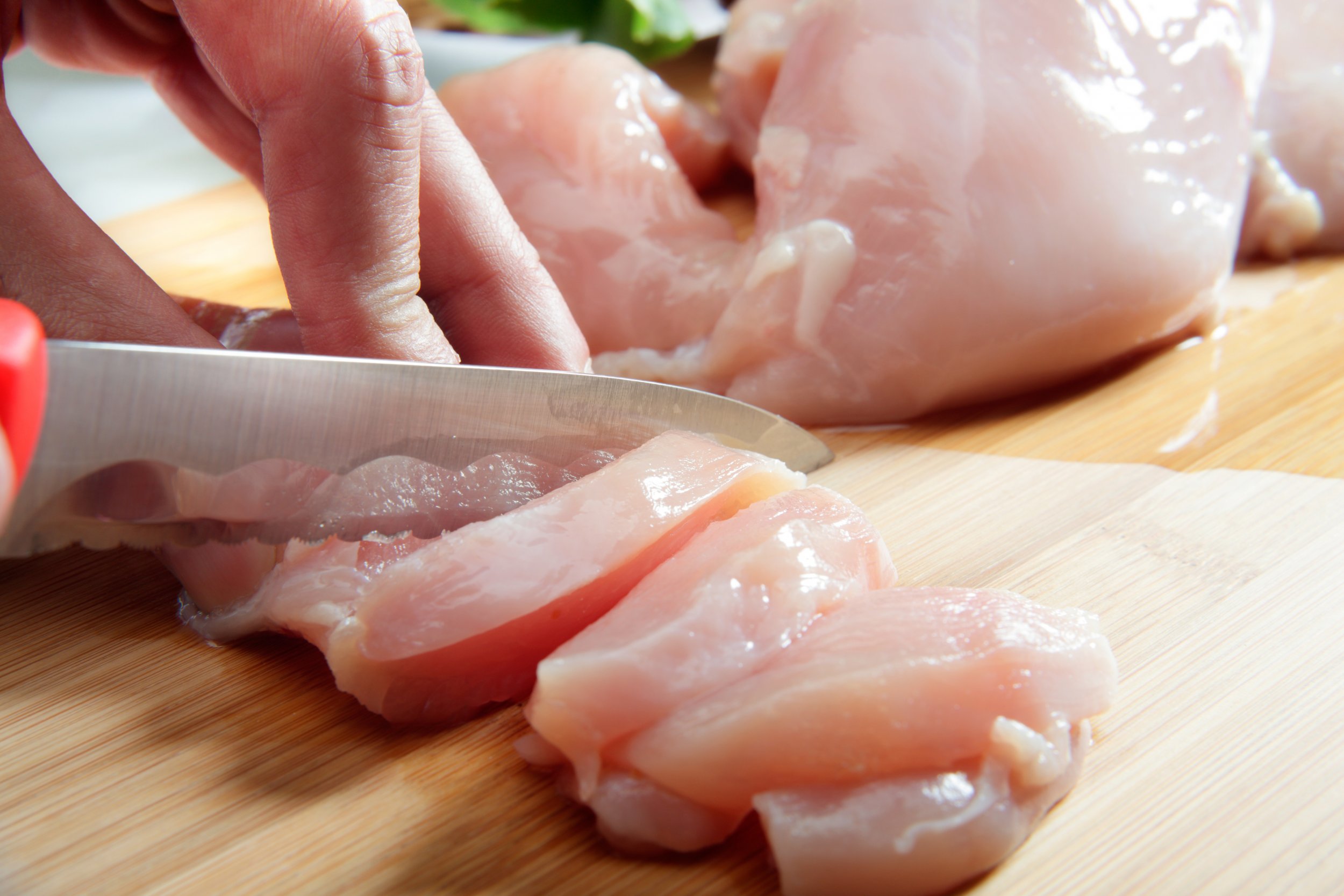
A heated discussion is taking place online after the Centers for Disease Control and Prevention tweeted about its food safety advice for cooking with chicken.
According to the tweet, the CDC recommends not to wash your chicken.
"Don't wash your raw chicken! Washing can spread germs from the chicken to other food or utensils in the kitchen," the post read.
Don’t wash your raw chicken! Washing can spread germs from the chicken to other food or utensils in the kitchen. https://t.co/QlFpd1alG3 pic.twitter.com/bLB1ofcuh7
— CDC (@CDCgov) April 26, 2019
The CDC says that Americans eat more chicken every year than any other meat and although it is a nutritious choice, the raw form is often contaminated with potentially harmful bacteria like Campylobacter, and, less frequently, Salmonella and Clostridium perfringens.
Eating undercooked chicken, or anything contaminated by raw chicken and its juices can lead to food poisoning, the CDC warns.
Nevertheless, the health agency's recommendation not to wash raw chicken before cooking sparked debate online, with many users suggesting that they weren't going to change their preparation methods.
One Twitter user, @maracharese, wrote in a post: "Many Americans wash their protein and know how to clean their kitchen afterwards to kill germs if any have spread. Also, in my family, we don't cook unless the kitchen is clean so there would be no utensils in the sink to speak of."
Another, @MissAuty_Baby, echoed these sentiments saying: "So we're suppose to just 'cook off' all that gunk from it sitting in a maxi pad for god knows how long? Eating left over feathers and bone dust. I'll continue washing mine and not getting sick from 'spread germs.' Y'all enjoy."
Several commenters said that they used a preparation method which involved washing the chicken with vinegar and lime.
"In Jamaica we've been washing chicken for ages....vinegar, lime, and water. We are still here," user @DimitriLyon wrote.
"Washing raw meat and poultry is essential," @Immortal777_33 wrote. "A better recommendation would be to isolate the area where the meat is washed. And only use specific utensils to clean and prepare meat and poultry."
In response to the debate below the original post, the CDC followed up with another tweet saying: "We didn't mean to get you all hot about not washing your chicken! But it's true: kill germs by cooking chicken thoroughly, not washing it. You shouldn't wash any poultry, meat, or eggs before cooking. They can all spread germs around your kitchen. Don't wing food safety!"
Below is the full list of steps that the CDC recommends to prevent food poisoning when cooking with chicken:
- Place chicken in a disposable bag before putting in your shopping cart or refrigerator to prevent raw juices from getting onto other foods.
- Wash hands with warm soapy water for 20 seconds before and after handling chicken.
- Do not wash raw chicken. During washing, chicken juices can spread in the kitchen and contaminate other foods, utensils, and countertops.
- Use a separate cutting board for raw chicken.
- Never place cooked food or fresh produce on a plate, cutting board, or other surface that previously held raw chicken.
- Wash cutting boards, utensils, dishes, and countertops with hot soapy water after preparing chicken and before you prepare the next item.
- Use a food thermometer External to make sure chicken is cooked to a safe internal temperature of 165 degrees.
- If cooking frozen raw chicken in a microwavable meal, handle it as you would fresh raw chicken. Follow cooking directions carefully to prevent food poisoning.
- If you think the chicken you are served at a restaurant or anywhere else is not fully cooked, send it back for more cooking.
- Refrigerate or freeze leftover chicken within 2 hours (or within 1 hour if the temperature outside is higher than 90 degrees).
Uncommon Knowledge
Newsweek is committed to challenging conventional wisdom and finding connections in the search for common ground.
Newsweek is committed to challenging conventional wisdom and finding connections in the search for common ground.
About the writer
Aristos is a Newsweek science reporter with the London, U.K., bureau. He reports on science and health topics, including; animal, ... Read more
To read how Newsweek uses AI as a newsroom tool, Click here.








